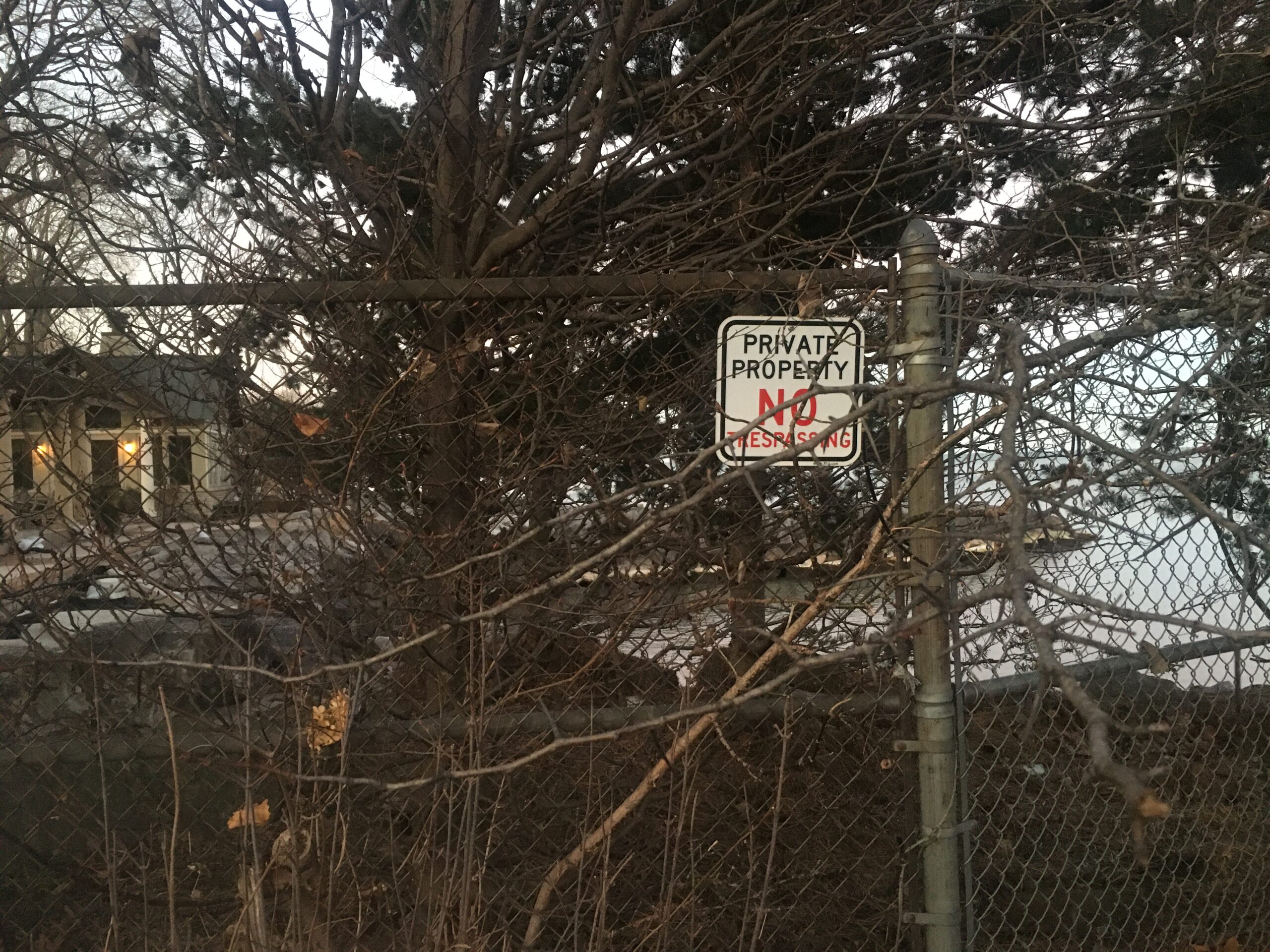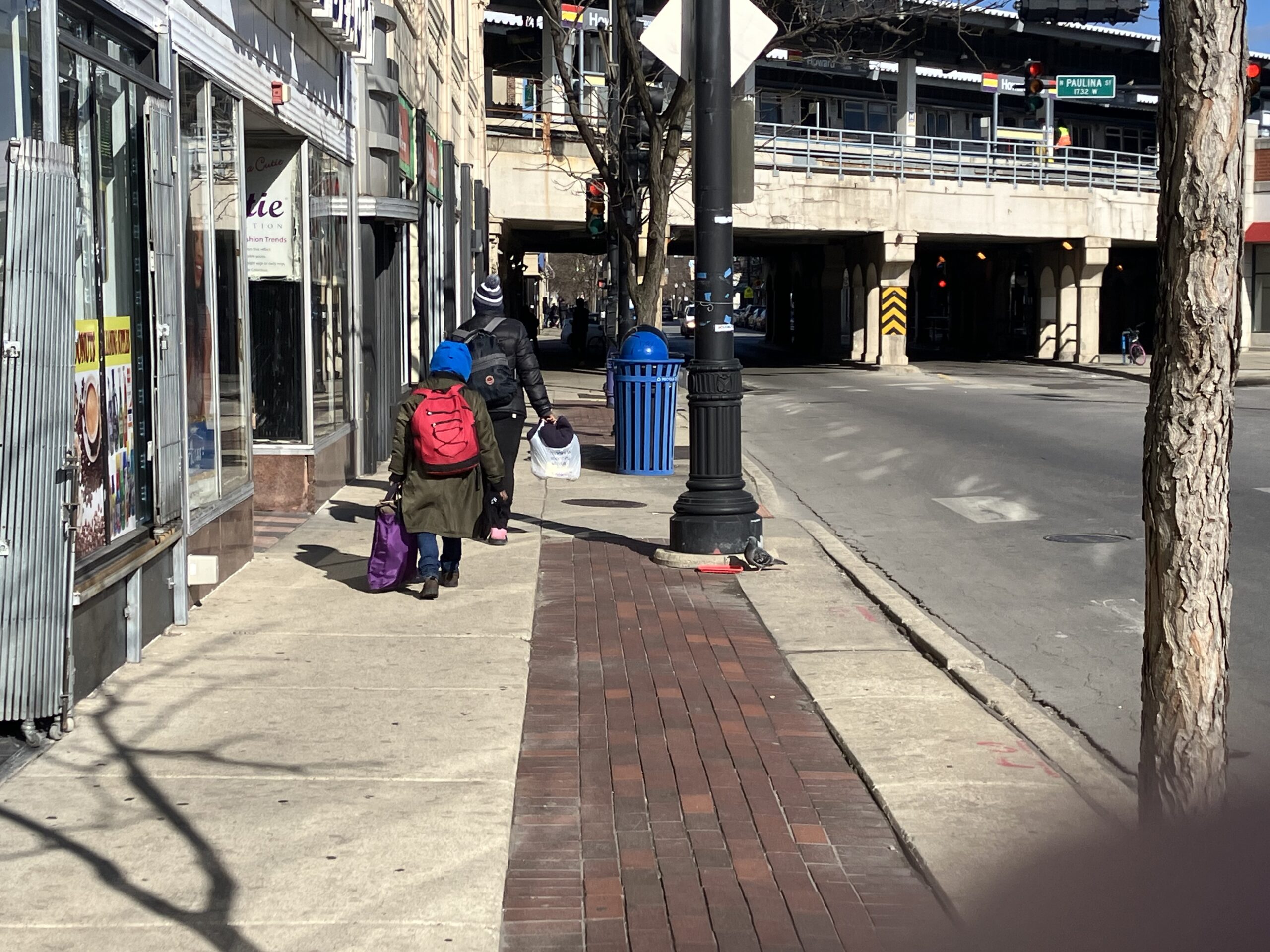By Bob Seidenberg
A fee on wealthy lakefront homeowners or a stealth tax?
Members of a City Committee heard both points of view Dec. 13, discussing a proposal by Eighth Ward Council member Devon Reid that the city assess a fee on 42 lakefront properties where access is cut off from the public.
Reid made the referral shortly after his election to the Council in April, calling for the City to study and potentially implement a public access cut-off fee.
At the Dec. 13 Planning & Development Committee meeting, Reid proposed that the City issue a Request for Proposal for a study of the issue.
He said the study look could look at “the lost revenue to the city and the loss of wealth to the city because of the fact we have the number of properties that we have that are cutting off access to the lakefront.”
A question of access
In discussion, Council member Jonathan Nieuwsma, 4th Ward, said he appreciated the “progressive sentiment” behind Reid’s proposal.
“It’s no secret that people that who can afford to live on the lakefront have extra wealth,” he said, “and it would be great if we can spread that wealth around a little bit.”
However, he said, “on the merits of this argument, though, I don’t think we have a strong argument, because access to the lakefront is not an issue.
“We do have ample public access to the lakefront with our many beaches,” he said, “and the lakefront that the homeowners are on is not necessarily lakefront that the public would want to have access to.
“It’s not like they’re sitting on 30 yards of sandy beach that actually does belong to the public and the public should enjoy access to – that’s not the case “ he added. “You know, most of the lakefront homes – at least looking at Google Earth – have no beaches and so there is nothing there to access.”
At the meeting, Reid shared with Committee members a video that centered on lakefront access in some communities in Minnesota.
“My point here is … that cutting up the access to the public lakefront has a negative impact on the wealth that is spread throughout,” he told Committee members.
Council member Bobby Burns, 5th Ward, said he was comfortable exploring “a lot of different options” on the proposal, suggesting it holds the possibility for the “city to reclaim revenue that our city needs,” he said. He suggested the city initiate a conversation with Northwestern.
“I think we need to continue to look into opportunities to generate additional revenue to add more value to homeowners across the city,” he said.
Not in the city’s authority
In citizen comment at the meeting, one lakefront owner called the proposal “a stealth way of raising property taxes.”
Speaking to the Committee over the Zoom link setup, Joan Cherry, a homeowner in the 700 block of Sheridan Road, told committee members that the proposal is described as a fee, “but really what really what I think is contemplated here is an additional property tax on the 42 lakefront private properties.”
“And that’s very concerning, because municipalities don’t have power to raise assessments,” she said, adding that that authority falls to the Cook County Assessor.
“So I’m concerned, number one, that this is really proposing a tax on a tax that is already in place,” she said. “And then it’s likely a request for an unconstitutional tax.”
As an owner of one of the lakefront properties that would be affected, Council member Eleanor Revelle, 7th Ward, recused herself from participating in the discussion.
‘Apples to basketballs’: Wynne
Council member Melissa Wynne, 3rd Ward, the other member of the committee whose Ward includes a portion of the lakefront, called the materials “incredibly unclear” for the Committee to make a decision.
She said one came from a college intern who looked at two lakefront areas in Minnesota – one with no public access, and another with complete public access.
“And their argument in this – which they admitted was flawed because there were many other variables as well – they speculated there was this distinct difference in land values because there was no public access to that lane,” she said.
“But they didn’t provide any information about why about what the extra fee would be.”
To “compare that to Evanston, to me, it’s not apples to apples – it’s like apples to basketballs,” she argued.
“We have an enormous amount of public access. We only have 42 properties that are lakefront. We have five beaches. We have Northwestern property that is open to public access. We have a public boat launch. We have paths along the lakefront.
“I mean, what we have here in Evanston is entirely different,” she said. “So I would not be the least bit interested in hiring a consultant for $100,000” to study the issue, she said, suggesting a figure. She noted that a recent study to assess a move by the city from the Civic Center barely passed the Council.
Reid said the issue was not “something that was just studied by some college student,” but rather by a Harvard University, certified public planner with a specialty degree in real estate.
He said the examples provided were lakefronts with plenty of activities, including boat launches and beaches, like Evanston, yet dealing with the issue of closed access.
As for the cost of a study, officials would not know that figure until they get the RFP back, he said.
On the other side, he said, “I could see this [a few] bringing in a substantial amount of money… that can provide funding for many parts of the equity work that we want to do.”
“That’s assuming that that this would pass legal muster,” Wynne shot back. “I don’t think it will. I’ve been receiving emails all day long from lawyers saying that this would not pass legal muster. I’m not willing to risk litigation for something without having any sense that another community has even done this successfully.
“There are other better ideas, better progressive ideas that I would much rather spend time on than this one,” she said, also raising concern about the burden it would place on overtaxed staff.
Reid said litigation might indeed be the case, “if we’re going to enforce folks who are wealthier and live on the lakefront” and have “the resources to try to protect their wealth.”
Burns argued, though, that those concerns should not prevent Council members from pursuing such ideas.
“We have to get better at figuring out what is the process for this body to generate new ideas, which then could in turn generate new sources of revenue which we need,” he said.
Nieuwsma observed, “As I understand the proposal right now, I don’t think this is an idea that has as a very good long-term prognosis. Is there another way to address these issues if we do a little bit more thinking and pull back our focus?” he asked.
Staffing the committee, Johanna Nyden, the city’s Community Development Director, suggested the city’s Comprehensive Plan as a possible vehicle.
The city is moving forward in a long overdue updating of the plan, which serves as Evanston’s official statement of local government policy regarding the physical development of the community.
Nyden told Committee members she had already been collecting items for consideration in the plan, which involves a number of city committees and groups and acts as a guide for other local policy actions.
With that advice, Reid tabled discussion on his proposal until June 13, when it is scheduled to be brought back to the Committee.
Proposal would slap an access tax on 42 lakefront properties




